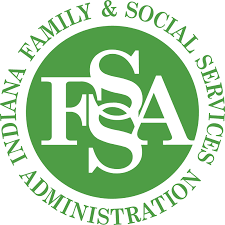Lugar Center Partners with Purdue & FSSA to Increase Efficiencies
- May 3, 2019
- 2 min read
Union Health Partners with Purdue Healthcare Advisors, Meadows Manor East, Visiting Nurse Association and Hospice of the Wabash Valley, and Westminster Village to establish the First Small Care Neighborhood in Indiana.

The Regenstrief Center for Healthcare Engineering (RCHE) at Purdue University is working with select organizations in the Wabash Valley to improve the quality and cost of healthcare services for Medicaid patients. This work is being funded by a federal grant to the Family and Social Services Administration (FSSA) allocated to specifically focus on improving the quality and cost of care for Indiana Medicaid Long Term Care (LTC) patients. Meadows Manor East, VNA, and Westminster have joined Union Health to form the first of two Small Care Neighborhoods in the State which will be at the forefront of tackling this issue. “Union Health's vision is to lead the community to its best health and wellness. Through strong partnerships with organizations throughout the Wabash Valley, Union Health works to build a healthier community for all, said Rhonda Smith, Vice-President and Chief Nursing Officer at Union Health. This initiative will engage us and our partners in a structured collaboration around Lean principles with the shared purpose of improving care for all our patients.”

The cost of a nursing home, in Indiana, runs an average of $70K per year, assisted living facility care costs $40K per year and in-home care (5 days a week for 5 hours a day) costs $30K per year, based on 2015 data. The cost of these services is increasing 5% per year. While strategies, policies and innovative insurance models are being explored to help Medicaid recipients receive the care they need in a lower cost venue that supports aging in place, our focus is on another dimension of cost, one that involves avoidable emergency department visits and hospital stays.
Patients can enter long-term care to recover from serious injury or illness through rehabilitation or move in as long-term residents. In either case, their medical condition combined with the care they receive can result in the need to send them to the emergency department and sometimes admit them to the hospital. Emergency department visits and hospital stays are costly and can in many cases (up to 40% for some populations) be avoided through improved care coordination, medication management and LTC care monitoring. Addressing the LTC problems requires multi-dimensional interventions that look at clinical, social and economic factors for patients, payers and providers. Systems thinking and engineering across the continuum of care is needed if sustainable and meaningful improvements are to be made. Year 2 of this grant will offer the opportunity to additional LTC partners to join this effort.
To learn more about this initiative please contact the Richard G. Lugar Center for Rural Health at 812-238-7479 or research@uhhg.org.




















